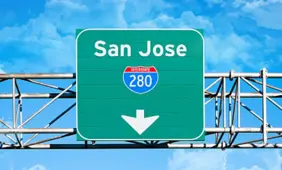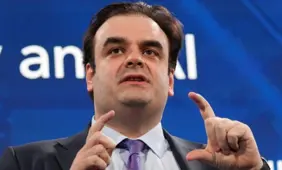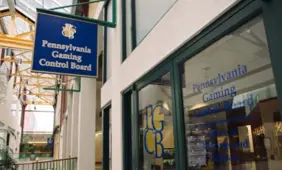Nevada Rejects FanDuel and DraftKings Licensing amid Prediction-Market Dispute
Nevada regulators have halted licensing for FanDuel and DraftKings amid concerns over prediction-market sports contracts.

The Nevada Gaming Control Board on Wednesday accepted the withdrawal of licensing plans submitted by Flutter Entertainment, the parent company of FanDuel, and indicated that DraftKings will also withdraw its pending applications. The move follows increasing alarm from state authorities over the emergence of prediction-market platforms that take yes-or-no or proposition-style wagers tied to the outcome of sporting events.
Chairman Mike Dreitzer said in a formal industry notice that the board believes the two vendors intend to engage in activities that conflict with Nevada law. "The board considers offering sports event contracts to constitute wagering activity under NRS 463.0193 and 463.01962", Dreitzer wrote, adding that "wagering occurs whether the contract is listed on an exchange regulated by the Commodity Futures Trading Commission or elsewhere".
Flutter had been on the cusp of securing suitability approval in Nevada, but its hearings were removed from the agenda at last week’s board meeting. The regulatory action was accelerated after Flutter announced a partnership with the CME Group to roll out a new FanDuel Predicts product, designed to combine prediction-market mechanics with fan engagement around sporting outcomes.
The Nevada board’s position places federal CFTC-regulated markets and state-licensed sportsbooks on a collision course. Prediction markets, which historically traded on political and economic events, broadened into sports-focused propositions in the past year. State regulators, including Nevada’s, have interpreted those contracts as indistinguishable from traditional sports wagers when they reference outcomes of athletic contests.
Industry observers say the decision highlights a rapidly evolving regulatory environment that leaves national operators facing difficult choices about product design and market access. "Nevada is making clear that it will treat sports-based prediction contracts as wagering under state law, regardless of any federal oversight of the exchange on which they might trade," said Eleanor Grant, a gaming regulatory consultant based in Las Vegas. "That forces operators to choose between revising their products or accepting exclusion from the state’s market."
DraftKings confirmed plans to withdraw outstanding licensing requests, according to the board notice, though the company has not publicly detailed how it will adjust product road maps elsewhere. Both FanDuel and DraftKings are among the largest U.S. sportsbook vendors, and their absence from Nevada – the country’s most established regulated gaming jurisdiction – could have commercial and competitive ramifications for casino partners that had expected to integrate their technology and customer bases.
Legal experts say the dispute could prompt litigation or legislative clarification at the state level. "This is ultimately a federalism question: whether a product regulated under federal commodities rules can lawfully operate where state statutes define wagering more broadly", said Mark Alvarez, a Nevada-based gaming attorney. "Operators may test that boundary in court, but states have a strong interest in protecting their licensed gaming frameworks and consumer protections."
More Regulation
Regulatory Next Steps and Industry Response
Operators now face a narrow set of options: reconfigure prediction products to remove sports-event contracts, seek statutory change in state legislatures, or pursue legal challenges to federal-state jurisdictional limits. Some companies may elect to limit prediction offerings to non-sports markets or to markets that explicitly permit such activity.
Beyond Nevada, other jurisdictions are watching closely. Recent moves in states such as Michigan have shown regulators are prepared to caution sportsbooks over similar offerings. The outcome here could shape product deployment nationwide, as vendors weigh growth opportunities against the cost and uncertainty of regulatory pushback.
For Nevada’s gaming industry, the immediate consequence is clear: FanDuel and DraftKings will not enter the state’s licensed sportsbook vendor pool while the prediction-market issue remains unresolved. That gap may open opportunities for other suppliers, but it also raises unanswered questions about the long-term shape of digital sports betting and how regulators will balance innovation with consumer protection.
Reporting will continue as companies respond to the board’s notice and as any legal or legislative developments unfold.
RELATED TOPICS: Regulation
Most Read
Must Read
 Interviews
Interviews
Exclusive Interview: Levon Nikoghosyan Shares AffPapa Winning Formula for Successful iGaming Events
Dec 03, 2025 Interviews
Interviews






Review this New Post
Leave a Comment
User Comments
Comments for Nevada Rejects FanDuel and DraftKings Licensing amid Prediction-Market Dispute